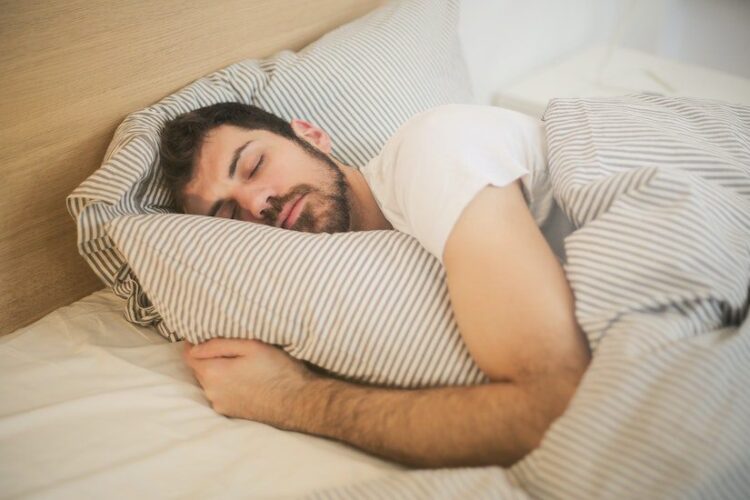The folks who make and sell mattresses invest a lot of money into letting us know that their products will transform the quality of our sleep. Maybe you can adjust the firmness of the mattress—and even have separate settings for each sleeper. Maybe you can press a button to raise your head or your feet or both. Maybe your mattress employs memory foam or a proprietary grid technology that, for example, protects raw eggs from cracking (though we readily admit we are not at all sure how much sleep raw eggs really need).
These mattress ads promise you can get better sleep—and that when you do, your whole life will improve dramatically.
What do we think of these ads? Well, it is true that a good mattress can improve your sleep. And it is true that better sleep can lead to some pretty dramatic improvements in various aspects of your life. For example, getting enough restful sleep supports your sobriety.
But it would be a mistake to let these ads convince you that upgrading your mattress is the only thing you need to do to improve the quality of your sleep. In fact, there are quite a lot of things you can do to increase the chances that you will regularly get the sleep you need to support your sobriety and to function well when you are awake.
Over two blog entries, we will explore some strategies that support sleep. We will start with things you can do in the daytime to make it more likely you will be able to sleep soundly at night. Next time out, we will share some effective evening strategies that encourage drifting off for a good night’s rest.
Making Smart Sleep-related Choices While the Sun is Shining
It might seem counterintuitive to start a discussion about getting enough sleep with daytime tips. But just as the quality of our sleep affects the quality of our days, the decisions we make during the day affects the quality of our sleep. Here are a few things to focus on during daylight hours.
- Soak up some sun each day. Getting outdoors is a great idea for a number of reasons, and one of them is that even short amounts of time spent in sunlight helps regulate your circadian rhythms (which basically means it helps your body keep track of the difference between daytime and nighttime). While it is important to protect yourself from the negative impacts of the sun’s rays, the benefits of seeking some sunlight are substantial. If the weather or your schedule keeps you inside, an artificial light designed to mimic sunlight can be a helpful alternative.
- Make smart decisions about what to eat and drink—and when.
- We don’t always think about how the foods we eat might play a role in how well we sleep. But when it comes to dinnertime, it is a good idea to avoid foods that are fatty, fried, or spicy. Heavy foods in the evening do not support restful sleep, but complex carbs (including low-fat cheese, milk, and yogurt) do promote sleep.
- Meanwhile, you have probably been anticipating a warning against too much caffeine. Here it is: limiting your caffeine intake to the early part of the day makes it less likely that the stimulant will keep you tossing and turning at bedtime. In the afternoon, it is time to switch to decaf coffee, herbal tea, or regular old thirst-quenching water. Getting better sleep each night may well mean that you simply won’t feel the need to consume caffeine late in the day to power through.
- Stick to your sleep schedule—even on weekends and lazy afternoons. For many people, the luxury of sleeping in on the weekend or of taking a nap on a quiet afternoon seems like the most beautiful luxury in the world. When you are always tired, having the chance to sleep late or to sneak in a nap might seem like the very thing you need to try to catch up on your rest. But it turns out that deviations from a regular sleep schedule can backfire, making it more difficult to consistently get quality sleep. Listen, sometimes the urge to sleep late on Saturday or to doze in front of the TV on Sunday afternoon will be all but impossible to resist. That’s okay. Just try not to let sleeping in and napping become habits.
Don’t Sleep on Getting Help for a Substance Use Disorder
If you are struggling with drugs or alcohol, odds are pretty good you are having trouble sleeping—either because the substances are keeping you awake or because you are constantly worried about the situation in which you find yourself. Or maybe both.
At Bel Aire Recovery Center in Kansas, we can help you reclaim and maintain your sobriety. So, if you are dreaming of getting your life back, this is your wake-up call that the best time to get treatment for a substance use disorder is always right now.




